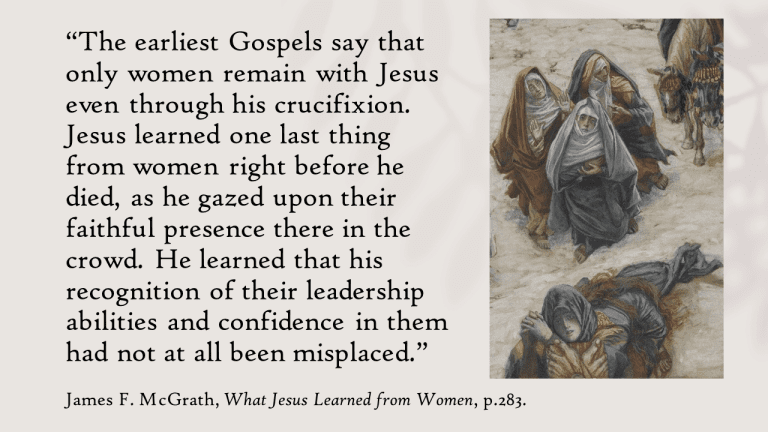Here is an edited and expanded version of what I wrote on Facebook the day before yesterday when I shared my blog post:
According to classic theism, God doesn’t change. God is omniscient and doesn’t learn. The Gospels are clear that Jesus changed, grew, and learned.
Where does that leave us?
It is possible to experience an encounter with God in and through Jesus, to be convinced that (as Paul put it) “God was in Christ.” It is even possible to affirm that in the very person of Jesus one encounters divinity and humanity united in this one human life. One can do these things without feeling the need to diminish, downplay, or deny Jesus’ humanity either in theory or in practice.
If, however, you assert a doctrine about who Jesus was that denies his humanity and what the Gospels clearly state about it, isn’t that a problem? It seems to me that it is a problem both for those who are conservative in the sense of emphasizing biblical authority, and those who are conservative in adhering to the creedal orthodoxy that includes the formula adopted at the Council of Chalcedon which emphasized the integrity and full undiluted genuineness of Jesus’ humanity, as well as his divinity.
It is par for the course for those who assert viewpoints like biblical inerrancy to have to deny and twist things the Bible says in order to affirm their doctrine about the Bible. They insist that the words of Paul in his letters are the very words of God and then are flummoxed when asked about Paul’s statement in 2 Corinthians 11:17, “In this self-confident boasting I am not talking as the Lord would, but as a fool.” It is no surprise then that they also assert things about Jesus that encounter serious problems when they bump up against what the Bible actually says.
My book What Jesus Learned from Women ventures and explores beyond what the Bible says, but in the interest of understanding the contents of the New Testament, the early Christian movement, and the historical Jesus. It thus takes what the Bible says as its starting point. Both as a practitioner of historical criticism and as a liberal Christian I will obviously be the last to say “the Bible says it, I believe it, that settles it.” My point is the irony that those who use such slogans are so often believed when they do so, and yet their viewpoint is far less founded in and compatible with what the Bible says than my own.
I also mentioned on Facebook yesterday that the Religion News Service shared a list of ten books recommended to keep Women’s History Month going all year long, and kindly included What Jesus Learned from Women on the list. The book is also mentioned in the latest Biblical Studies Carnival.
Still haven’t bought your copy? Get 20% off if you buy through the Wipf & Stock website using the coupon code APR21.
Finally, here’s a meme of the conclusion of the book.















